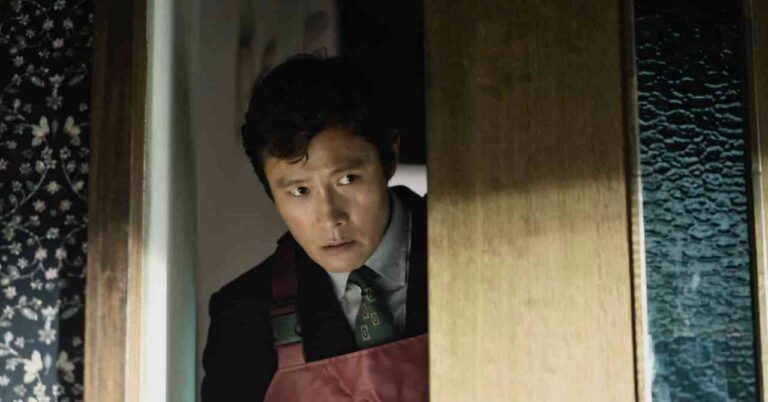What is a sentimental value, the new Joachim Trier is worth? [critique]
A theoretical and problematic object that resounded by egotist little-bourgeois traumas or a virtuoso variation around art which can just as much destroy that helping to rebuild? The Cannes Grand Prix divided first
AGAINST
An anxious actress who refuses to climb on stage, makes the behind the scenes of her sudden hesitation before freeing her text and her game in front of an audience surely not suspecting the chaos that was playing behind the curtains. Trier continues almost directly with a very beautiful sequence where an interior – like the beautiful Here De Zemeckis – is the silent witness of a family life. Past, present intertwined. The walls become the anchor point of an intimate story, a scene on which happiness and tragedy takes place. From the outset, here we are taken in the nets of a double representation space which includes both pantomime and superego. Game and I. The noose tightens around a demiurgic paternal figure whose relationship with its two daughters is more or less broken. He is a filmmaker (!), One of the actress (the one we saw his crisis) the little narrative music of this Sentimental value Then deploys his bitter melody orchestrated by the Norwegian filmmaker with his eyes riveted on his Bergmanian score (Fall 2.0) Block in block, we inevitably advance towards a programmed reconciliation, that which would finally see the false pretens losing before the naked truth of feelings. The staging draws a sort of harm where everyone huts in the psychological and narrative clichés allocated to them: selfish papa-cineaste vs daughter-actress damaged soon declined by her Hollywood during the Hollywood. The walls of the house, they have not vibrate for a long time, they look at or no longer feel anything. As if once invested by the cogs of fiction, they had nothing more to hide so to reveal to us (the beauty of the Zemeckis resides precisely there) finally, in a final sequence of a relentless heaviness the film is finally revealed to itself is a theoretical and problematic object resarating the self-scisting traumas.
Thomas Baurez
POUR
Cannes loves nothing as long as burning today what he praised yesterday. Julia Ducournau has just experienced it through unjustly violent reception received by Alphaas if he had to make him pay his palm to Titanium. And we could fear the same fate for Joachim Trier, also acclaimed in 2021 with his Julie (in 12 chapters). However, he occurred exactly the opposite, the enthusiasm of criticism even finding an echo in the jury which granted him his Grand Prix. And this welcome owes nothing to chance. He tells the quiet power of an author who, from his first long, New deal (2006), continues a work (Oslo August 31, Back home, Thelma…) Consistent without ever stinging. But also and above all the richness of a film that speaks at the same time and in a perfect complementarity of a father-girl relationship, an unwavering and protective link between two sisters and behind the scenes of cinema. His gaze on the seventh art and more precisely on the profession of actress, so often reduced to clichés, symbolizes the DNA of Sentimental value. This refusal of any Manichaeism as of never trying to round the corners. Thus, at no time, he does not lock in a status of victims or white geese Nora who begins by refusing the project offered to him by his father or Rachel, the American star whose latter will use as a bait so that she returns to his decision. Sorting all the a priori. All without hammering things, with elegance not devoid of humor which gives birth to an exciting reflection around art which can just as much destroy as to help to rebuild itself. But this virtuoso gesture required, to take its entire dimension, a cast capable of embodying all the nuances. Stellan Skarsgard, Renate Reinsve and she Fanning succeeds this prodigy. We should find all these little people at the Oscars.
Of Joachim Trier with Renate Reinsve, Stellan Skarsgard, she Fanning … Duration 2h12. Released August 20, 2025

![What is a sentimental value, the new Joachim Trier is worth? [critique]](https://gruntstuff.com/wp-content/uploads/2025/08/What-is-a-sentimental-value-the-new-Joachim-Trier-is.png)





